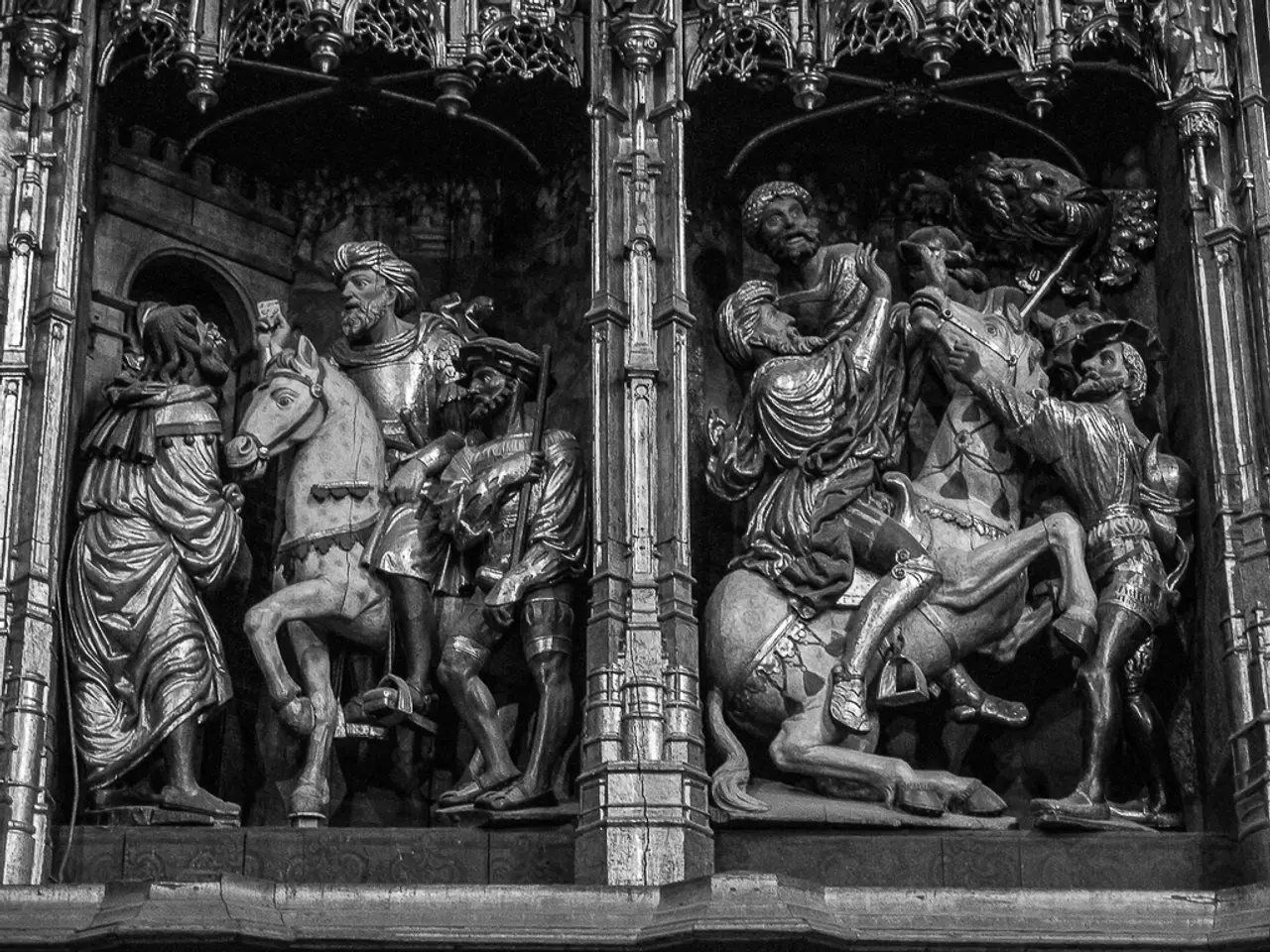Conflict between Ayn Rand and Milton Friedman, analyzed by Jennifer Burns
In the realm of 20th-century thought, two names stand out as influential advocates for capitalism and individual freedom: Ayn Rand and Milton Friedman. Despite their shared goal, their approaches diverged significantly, reflecting broader intellectual differences.
Ayn Rand, the novelist and philosopher, promoted capitalism through her philosophical system, Objectivism. Characterized by an over-emphasis on rationality, individualism, and a moral defense of self-interest, this system found expression in her novels, most notably Atlas Shrugged and The Fountainhead. Rand’s approach was as much cultural and philosophical as economic, appealing to moral and mythic narratives about the individual’s role in society.
The character Howard Roark from The Fountainhead serves as a representation of Rand's ideal of the individual focused solely on their own creative vision. However, some consider her work to be simplistic or absurd, while others view it as a transformative influence that challenges our understanding of individuality, capitalism, and human nature. The portrayal of achievement in The Fountainhead may be seen as somewhat unrealistic, and the philosophical system of Objectivism is based on a fictional world rather than empirical reality. Yet, her work continues to inspire creators and remains a subject of debate.
Milton Friedman, a Nobel laureate in Economics, advocated for capitalism primarily through economic theory and empirical analysis. His style was more academic and policy-oriented, focusing on practical mechanisms like monetary policy rules and free markets to limit government intervention. Friedman emphasized rational, scientific inquiry and market efficiency rather than mythology. His impact was substantial in economics and public policy, influencing central bank thinking and deregulation, often stressing transparency and predictable rule-based systems over discretionary control.
Despite drawing upon American frontier mythology, Friedman's focus was primarily on economics. Unlike Rand, he was fundamentally focused on economics rather than cultural transformation. His work, while not as mythic or narrative as Rand's, has had a lasting impact on economic thought and policy.
In summary, Rand's approach is characterized by a mythic, philosophical narrative motivating capitalism as a moral ideal, while Friedman’s is a rational, empirical advocacy grounded in economic science and policy pragmatism. Rand's style produced a cultural movement with broad ideological reach, while Friedman's contributed to economic reforms and policy debates. Both sought freedom, but Rand framed it in moral-heroic terms, whereas Friedman focused on rational governance and economic freedom through institutional design.
This contrast is evident in the formation of the cult-like following called the Collective, which included future Federal Reserve Chairman Alan Greenspan, a testament to Rand's impact. However, her philosophical system, Objectivism, is not universally accepted or recognized as a major philosophical system of the 20th century. Despite being considered outdated by some, Rand's systematic thinking is marked by her ability to flip conventional wisdom on its head and force deeper questioning of assumptions.
In the end, the legacies of Ayn Rand and Milton Friedman continue to shape our understanding of capitalism, individual freedom, and the role of government in society, offering a rich tapestry of ideas that challenge and inspire.
- Despite their distinct approaches, both Ayn Rand and Milton Friedman sought to influence the realm of education-and-self-development, with Rand emphasizing the moral-heroic aspects of individuality, and Friedman advocating for rational inquiry and scientific thinking.
- The impact of Ayn Rand and Milton Friedman extends beyond finance and economics; while Rand's work inspired a cultural movement, Friedman's empirical analysis significantly shaped policy debates and central bank thinking, particularly in technology and sports industries, where market efficiency and free competition are key factors.




